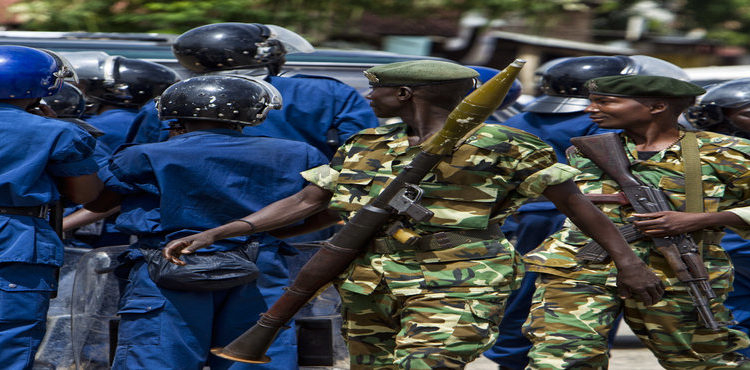GENEVA, 15 June 2017 – “We were struck in our investigations by the feeling of deep and widespread fear running through the testimonies we gathered,” said Fatsah Ouguergouz, Reine Alapini Gansou and Françoise Hampson, members of the Commission of Inquiry on Burundi, during the presentation of their second oral briefing* to the Human Rights Council.  
“Today we can say that our initial fears concerning the scope and gravity of human rights violations and abuses in Burundi since April 2015 have been confirmed”, they stated.  
The Commission of Inquiry on Burundi regrets its inaccessibility to the country and the lack of cooperation from the Burundian Government. In spite of all, the Commission interviewed many Burundians in exile and visited Tanzania, Rwanda, Uganda, the Democratic Republic of Congo and Kenya among other countries. Since the inception of its investigations, it has collected more than 470 testimonies of human rights violations allegedly committed in Burundi since April 2015.  
These violations include extrajudicial executions, acts of torture and other inhuman and degrading treatment, sexual and gender-based violence, arbitrary arrests and detention and enforced disappearances, often accompanied by demands for large ransoms from families in exchange for promises to release detainees or to find those who have disappeared. Many of these violations have been committed by members of the National Intelligence Service and the police, sometimes assisted by members of the youth league of the ruling party, the Imbonerakure.  
“We were struck by the particularly cruel and brutal nature of the violations described to us,” the members of the Commission stated. They received testimonies alleging the use, during torture sessions, of clubs, rifle butts, bayonets, iron bars, metal chains and electric cables with the result that some victims’ bones were broken and other victims lost consciousness; needles stuck into victims’ bodies or unidentified products injected into them; nails ripped out with pliers; burns; and many abuses inflicted on male detainees’ genital organs. “In several cases, acts of torture and ill-treatment were accompanied by violent insults and death threats, including of an ethnic nature,” they said.  
The Commission of Inquiry has also documented cases of sexual violence, particularly against female relatives of government opponents, especially by people believed to be Imbonerakure.
“These human rights violations are reinforced by hate speech, sometimes with an ethnic dimension, delivered by certain state officials and members of the ruling party. This was illustrated by a recent video circulating in April 2017, showing around a hundred Imbonerakure chanting a song calling on people to ‘impregnate [female] opponents so that they give birth to Imbonerakure,’” the Commission members added.
However, testimonies indicate that victims are most often targeted on the basis of their alleged opposition to the government, independent of their ethnicity.
According to Resolution 33/24** establishing the Commission of Inquiry on Burundi, the Commission will present its final report at the thirty-sixth session of the Human Rights Council, in September 2017. Until then, the Commission will continue its investigations and proceed with an analysis, in particular to establish whether certain violations or abuses constitute international crimes and, if necessary, to establish individual responsibility.







